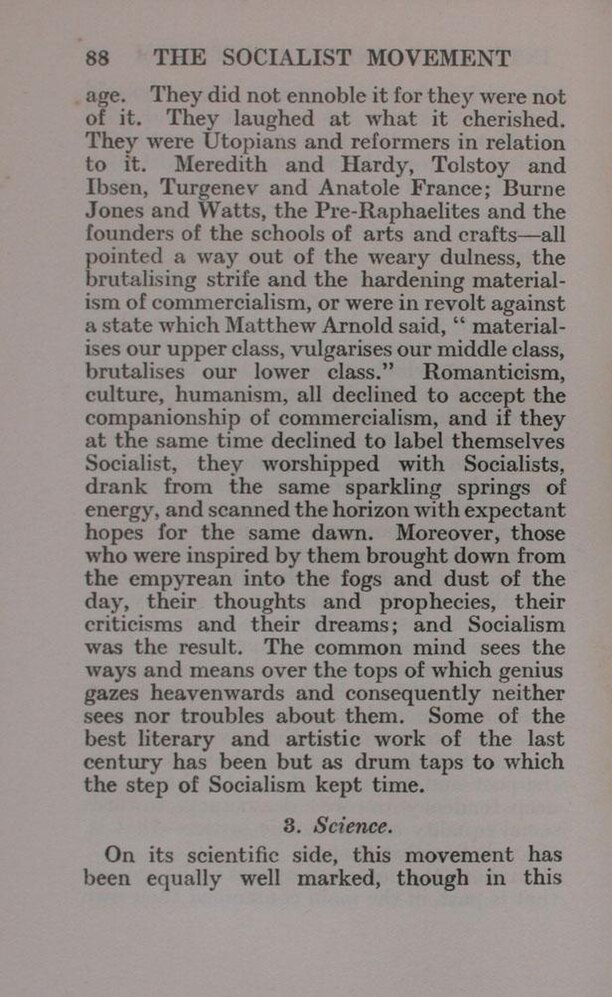age. They did not ennoble it for they were not of it. They laughed at what it cherished. They were Utopians and reformers in relation to it. Meredith and Hardy, Tolstoy and Ibsen, Turgenev and Anatole France; Burne Jones and Watts, the Pre-Raphaelites and the founders of the schools of arts and crafts—all pointed a way out of the weary dulness, the brutalising strife and the hardening materialism of commercialism, or were in revolt against a state which Matthew Arnold said, "materialises our upper class, vulgarises our middle class, brutalises our lower class." Romanticism, culture, humanism, all declined to accept the companionship of commercialism, and if they at the same time declined to label themselves Socialist, they worshipped with Socialists, drank from the same sparkling springs of energy, and scanned the horizon with expectant hopes for the same dawn. Moreover, those who were inspired by them brought down from the empyrean into the fogs and dust of the day, their thoughts and prophecies, their criticisms and their dreams; and Socialism was the result. The common mind sees the ways and means over the tops of which genius gazes heavenwards and consequently neither sees nor troubles about them. Some of the best literary and artistic work of the last century has been but as drum taps to which the step of Socialism kept time.
3. Science.
On its scientific side, this movement has been equally well marked, though in this
